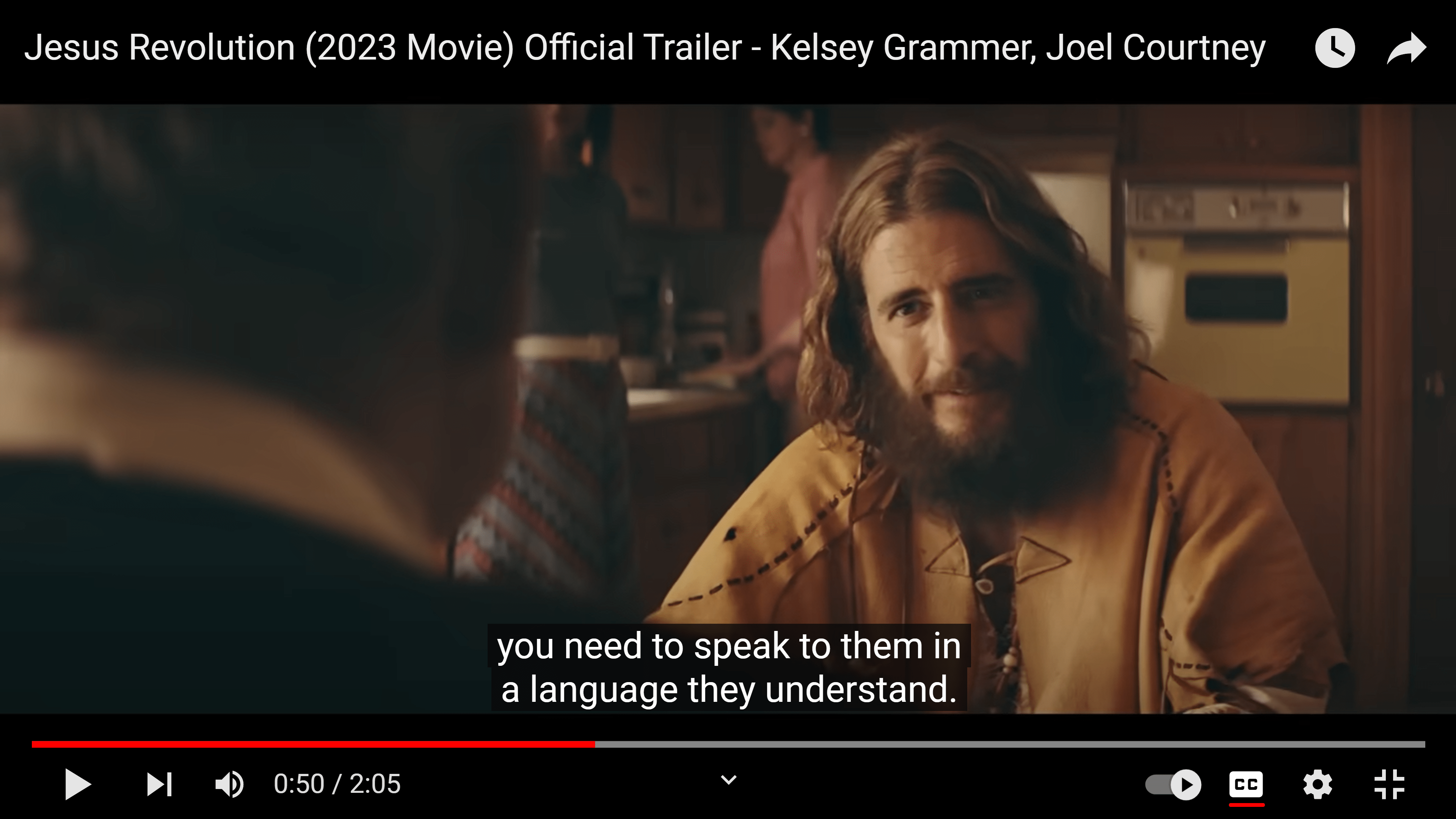Night 25 of the 2023 American Tour
I am pleased for lives transformed in such a way that a person is taken out of a spiral downwards and into a stable and sustainable lifestyle, BUT does it have to be at the cost of understanding a bigger world?
Take the film “Jesus Revolution” and Cannons’ satirical “hurricane”:
I can bring a change
I can bring the thunder and the rain
Everything around me
Everything will rearrange
On that the Lionsgate evangelicalism and the critical skepticism of the Cannon can agree, but how to evaluate the “Jesus Revolution” as a film and as history, and the two are not the same.
Watching the film, I felt my passions swayed by a Hollywood Romance: we wanted the boy and girl to get together and live happily ever after, and they did (sort of). We wanted trails and tribulations to be surmounted. We want redemption, and the message of redemption was fair and reasonable, but what was not fair and reasonable was the transformation of the American Soul into American Religion without regard to what the rest of the world thinks; in fact, as if the rest of the world does not exist, only the divine nation.
In the end, the Hollywood-style American Religion loses any capture for any critical thinker, international or American. The American Soul has become extravaganza, loud, large spaces, and arrogant:
It’s not a place
This country is to me a sound
Of drum and bass
You close your eyes to look around.
WHY do I say that? Think; what became of the Jesus Revolution? It transmuted into the American Megachurch Incorporated: Calvary Chapel in the beginning, then Harvest, and then Vineyard. It was exactly what the Jesus Revolution was revolting against: the performance of American capital and materialism as counter-culture. The American film was scripted to the Hollywood dramatic needs to find comfort in a good and clean ending, and that is not the history.
The message of the film was hope in being real, and what is real is the family of God and his Son, Jesus Christ. Missing was the much historical realism:
1. the fact that the Jesus Revolution was caught between cult and a tool for the establishment – forgotten is the Children of God saga and the reactionary conservatism which wanted the Jesus counter-cultural movement for its own end, often forcefully removing counter-cultural leaders who did not toe the line (there were fleeting suggestions made in the film; but the audience would have not understood under the soapy performance);
2. the fact that the film hid so much of the nuance historical references which did give the full understanding; the fact that there was:
a. the Charismatic movement with healing and prophecy had already started a decade earlier;
b. the clear link to the beatnik generation of the 1950s to the dropout generation a decade later – youth evangelisation in youth alternative movement has never been something new; and
c. liberalisation of evangelicalism had an important backdrop to the story as much as the reactionary conservatism was never the comic-book portrayal; in fact, the reactionary biblicalism was the very same biblicalism in the Jesus Movement
3. the fact that the film was correct in its portrayal of personality archetypes but failed in taking such archetypes too literal.
Personality is the key to the film: the underdog and misunderstood heroes, who included prophetic “starters” who cannot bring the movement into the new establishment.
Hopefully, a critical reading will lead to understanding my doctorate thesis: The American Revivalist Tradition (ART) is the export of American Religion. American revivalism has become performance, acting out the message of American commercialism. You can buy your way to heaven and find the film fantasy of salvation. What the film says is there’s a marketplace of religion and the American brand of Christianity is not only the best option, but the only option (the hard sell); nothing else works. Jesus is One Way: “I am the way, and the truth, and the life: no one cometh unto the Father but by me.” Yes, “me”, as in “My Church”. And there is a question of what exactly is being sold: is it hope in love or hope in miracles? “Miracle on 34th Street” is a 1949 Hollywood film and reflects the fanciful version of the later Jesus Revolution. Love is more a universal message (not a reference to the commercial studio) but it does not sit well with the message of literal miracles. In fact, the Jesus Revolution looked like a thin Christian version of Timothy Leary’s message of “Turn on, tune in, drop out.”
The talking-heads’ segment, screened before the film, expressed the hope that the production might inspire another Jesus Revolution for our times. If serious and professional historians are to be believed, rather than movie producers, it is highly unlikely that such an event will return. For one thing, most critical thinkers around the world (including the USA) no longer buy the message. That might be a minority position, but the other reason is more compelling. Most believers only want the nostalgia of the past; they do not want their lives disrupted by a world they do not understand. My American Tour has shown me this, and, in particular, my conversations at Fuller on white backlash to international perspectives.
The Jesus Revolution was an incredible event for its time, but do not believe the film hype. Believe the evidence of history. And understand the language much deeper.
Neville Buch
Latest posts by Neville Buch (see all)
- J. D. Vance’s Insult to America is to Propagandize American Modernism - July 26, 2024
- Why both the two majority Australian political parties get it wrong, and why Australia is following the United States into ‘Higher Education’ idiocy - July 23, 2024
- Populist Nationalism Will Not Deliver; We have been Here Before, many times… - July 20, 2024

